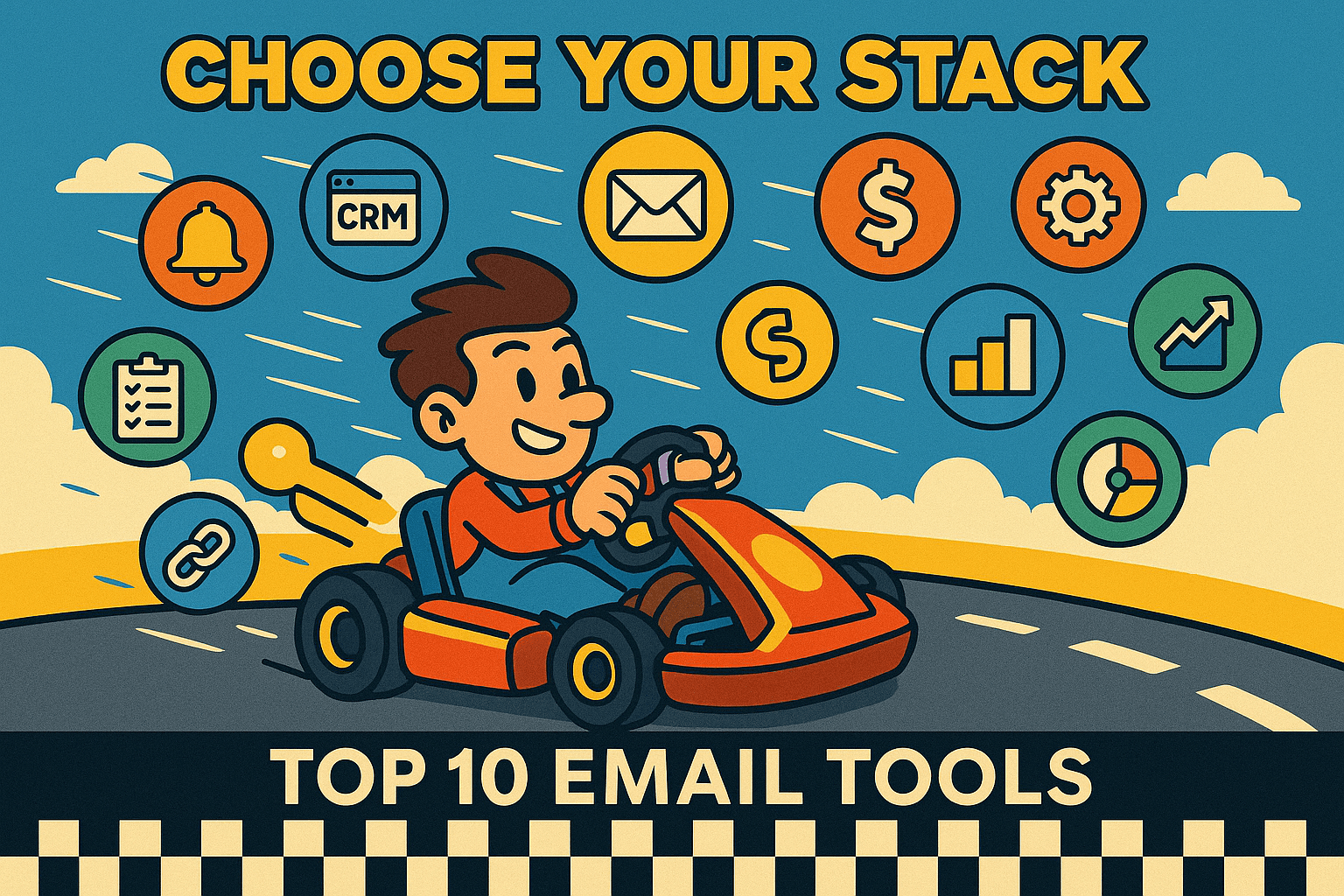For early-stage startups operating with limited budgets, choosing the right email marketing tool is crucial for maximizing outreach, automation, and conversions without overspending. Below is a detailed overview of the top ten email marketing platforms, focusing on features, pricing, and user experience tailored for budget-conscious startups.
1. Mailchimp
Features:
- Comprehensive automation suite supporting drip campaigns, triggered emails, and customer journey mapping.
- Advanced segmentation with tags, behavioral data, and custom attributes.
- Intuitive drag-and-drop email builder with a large template library.
- Robust analytics including ROI tracking and campaign performance.
- 300+ integrations with e-commerce, CRM, CMS, and productivity platforms.
- Additional marketing channels: SMS, social media, landing pages.
- AI-driven content suggestions and optimization tools.
Pricing:
- Free up to 500 contacts with basic features.
- Essentials plan starts at approximately $13/month for 500 contacts; scales with list size.
- Standard and Premium plans offer expanded automation and reporting.
- Discounts for annual billing and nonprofits.
Ease of Use:
- Highly rated for accessibility and onboarding, suitable for non-technical users.
Summary: An all-in-one, scalable option ideal for startups wanting a strong balance of ease and advanced capabilities, with a generous free tier to begin.
2. Sendinblue (Brevo)
Features:
- Multi-channel marketing encompassing email, SMS, WhatsApp, and chat.
- Customer data platform powering detailed segmentation.
- Visual automation workflows and customer scoring.
- Built-in CRM and sales pipeline management.
- Advanced analytics and extensive API integrations.
Pricing:
- Free plan allows 300 emails/day to unlimited contacts.
- Starter plan approximately $25/month for 20,000 emails.
- Pricing based on emails sent, not contact list size.
Ease of Use:
- Modern user interface; moderate learning curve due to multi-channel features.
Summary: Excellent for startups expecting to scale rapidly or employ multi-channel campaigns. Pay-per-send pricing is budget-friendly for wide contacts but controlled sends.
3. ConvertKit
Features:
- Visual automation builder tailored for content-driven drip sequences.
- Subscriber tagging and segmentation with custom fields.
- Professional landing pages and opt-in forms.
- Integrations via Zapier; affiliate program support.
- Creator Pro offers deep analytics and insights.
Pricing:
- Free tier supports up to 1,000 subscribers with limited automation.
- Creator plan from $15/month for 300 subs, scaling with list size.
- Creator Pro at $59/month (up to 5,000 subs) adds advanced features.
Ease of Use:
- Clean, simple interface designed for creators and beginners without technical expertise.
Summary: Ideal for startups focused on content creation and audience engagement by automation-driven interaction without complexity.
4. Additional Noteworthy Tools
- Moosend: Strong advanced automation, easy reporting; starts at $9/month for 500 subscribers.
- MailerLite: User-friendly drag-and-drop, automation, and segmentation; free to 1,000 subscribers, ~$10/month for paid.
- Benchmark Email: Automation and A/B testing, free up to 500 subscribers; paid from $13/month.
- GetResponse: Features webinars, landing pages, with $19/month starting price; steeper learning curve.
- ActiveCampaign: Powerful CRM and machine learning automations; no free plan; starts at $29/month.
- AWeber: E-commerce tools, automation; free tier for 500 subs; pro from $19.99/month.
- Constant Contact: Event marketing and social posting features; starts at $12/month; highly approachable for beginners.
5. Direct Comparison Table
| Platform | Strengths | Free Plan | Starting Price* | Pricing Driver | Ease of Use |
|---|---|---|---|---|---|
| Mailchimp | All-in-one, integrations, AI | 500 contacts | $13/mo for 500 | Contact count | Excellent |
| Sendinblue | Multi-channel, unlimited contacts | 300 emails/day, unlimited contacts | $25/mo (20k emails) | Emails sent | Very Good |
| ConvertKit | Creator-friendly automation | 1,000 subscribers | $15/mo (300 subs) | Subscriber count | Outstanding (creators) |
| MailerLite | Simple, affordable automation | 1,000 subscribers | $10/mo (1,000) | Contact count / volume | Excellent |
| Moosend | Automation, value | Trial (30 days) | $9/mo (500 subscribers) | Subscriber count | Very Good |
| Benchmark Email | Simplicity, responsive design | 500 subscribers | $13/mo (600 subs) | Contact count | Excellent |
| GetResponse | Webinars, landing pages | 30-day free trial | $19/mo (1,000) | Contact count | Good |
| ActiveCampaign | CRM and ML automations | No free plan | $29/mo (1,000) | Contact/features | Excellent (steep ramp) |
| AWeber | Classic, e-commerce integration | 500 subscribers | $19.99/mo (500 subs) | Contact count | Good |
| Constant Contact | Events, ease-of-use | No free plan | $12/mo (500) | Contact count | Excellent |
*Pricing as of Q2 2025, subject to change.
6. Conclusion
For budget-conscious startups, MailerLite and Benchmark Email offer accessible free plans with straightforward onboarding, perfect for beginners. Sendinblue’s email volume–based pricing benefits startups with large lists but fewer sends.
For automation and growth potential, Mailchimp provides scalability and user-friendly design, while ConvertKit excels for content-focused ventures prioritizing segmented nurturing.
Startups anticipating multi-channel campaigns should consider Sendinblue or ActiveCampaign for more complex automation and CRM needs.
Choosing an email tool hinges on your startup’s growth plans, technical skills, and whether multi-channel marketing or pure email focus suits your strategy best. Starting with tools like Mailchimp, Sendinblue, MailerLite, or ConvertKit offers a balanced blend of cost, capability, and ease of use to build impactful drip campaigns.

